Despite the effort to develop an SEO strategy, create quality content, and conduct SEO audits, achieving visibility in Google’s search results isn’t guaranteed.
Surprisingly, 90% of web pages receive no search traffic from Google. This raises the question: if you’re not getting the traffic, who is? 🤔
The answer lies with your SEO competitors.
In marketing, the goal is to show potential customers why your product is the perfect solution for their needs. To achieve this, it’s essential to understand what your competitors are offering.
Indeed, if your competitors excel in these areas and outperform you, gaining visibility becomes a challenge. This is where the importance of SEO competitor analysis becomes important.
SEO competitive analysis helps pinpoint the strengths and weaknesses, enabling you to devise a strategy for staying ahead of your competitors in the rankings, whether on Google or other platforms.
In this post, we’ll show you how to perform a competitive SEO analysis. So, without any further ado, let’s get started.
1 What is SEO Competitive Analysis?
SEO competitive analysis systematically examines competitors’ online presence, focusing on their SEO strategies, tactics, and performance metrics.
This analysis provides invaluable insights into your niche or industry’s strengths, weaknesses, and opportunities.
By examining competitors’ actions and outcomes, you can refine your own SEO strategies to gain a competitive edge in search engine rankings.
2 Why is an SEO Competitive Analysis Important?
SEO competitive analysis helps you with the knowledge necessary to:
- Identify market trends and emerging opportunities.
- Understand audience preferences and behaviors.
- Benchmark your own performance against industry standards.
- Uncover gaps and weaknesses in the SEO strategies.
- Formulate informed decisions to enhance online visibility and organic traffic.
- Stay ahead of competitors by adapting to changes in search engine algorithms and user trends.
3 How to Perform SEO Competitive Analysis
Let us now discuss the ways to perform a competitive SEO analysis.
3.1 Identify Your Competitors
To perform SEO competitive analysis, you need to identify your competitors.
One way to identify competitors is by conducting searches on popular search engines like Google, Bing, or Yahoo.
Start by using relevant keywords or phrases related to your business or industry. Analyze the search results to identify websites that consistently appear in the top positions for these keywords.
For instance, suppose you own a boutique specializing in handmade jewellery. You can start by entering relevant keywords, such as handmade jewelry, artisan jewellery, or unique jewellery designs, into search engines such as Google or Bing.
Analyze the search results to identify other jewellery boutiques or artisanal jewellery makers consistently appearing in top positions.
You can also use tools like Ubersuggest, Semrush, and Ahrefs to identify your competitors.
For instance, in the Semrush Organic Research tool, enter the domain name and click Search.

Now, let the analysis tool do the heavy lifting for you. Scroll down to the bottom to view the organic competitors.

3.2 Find Keyword Gaps
Finding keyword gaps involves identifying keywords for which your competitors are ranking but your website is not. This allows you to uncover new opportunities to target relevant keywords and improve your search engine visibility.
Let’s say you operate an online pet store specializing in dog supplies. Enter your website URL using a free tool like Google Keyword Planner.
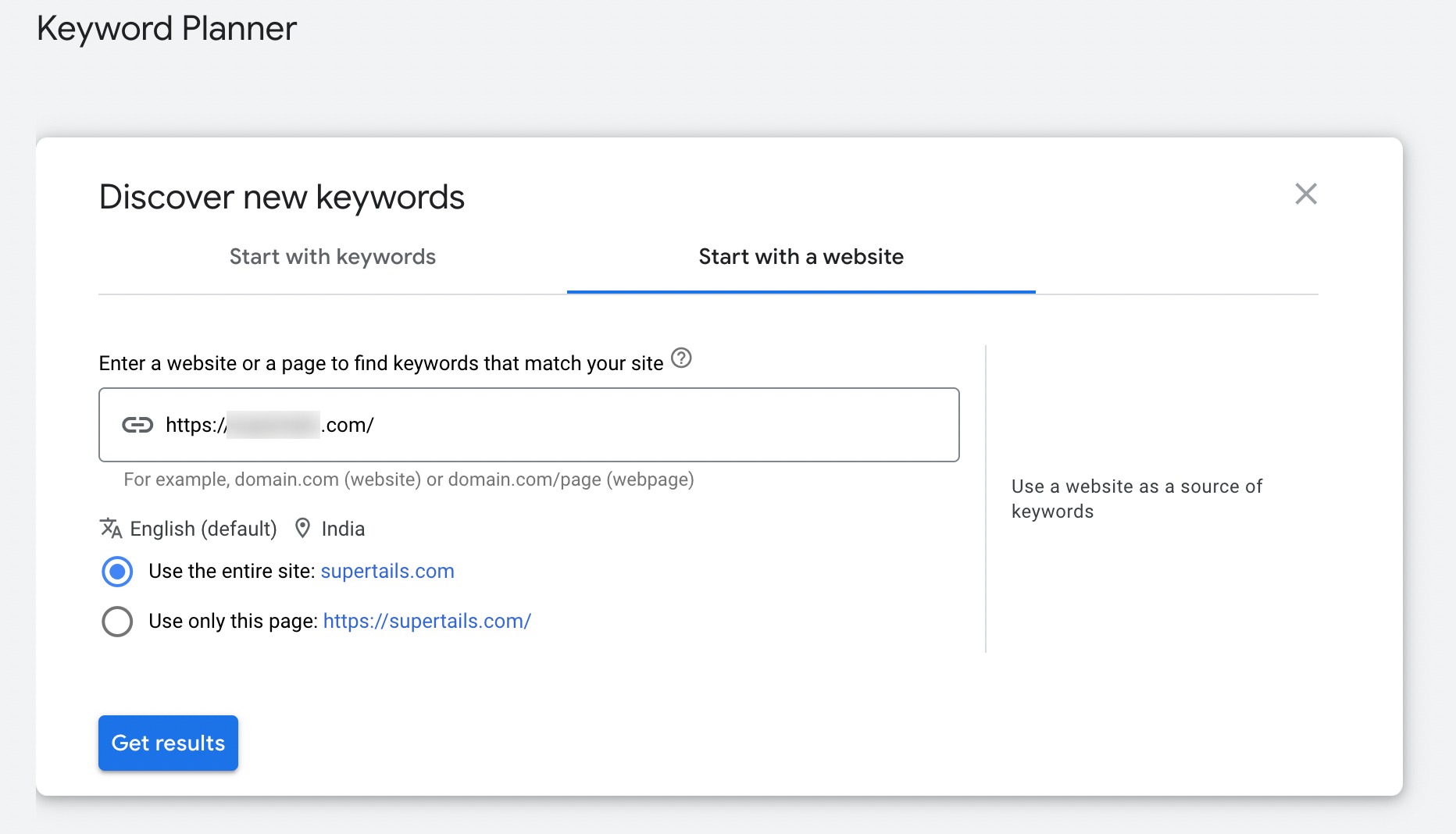
Then, explore the Keyword ideas section to view a list of relevant keywords related to your website.
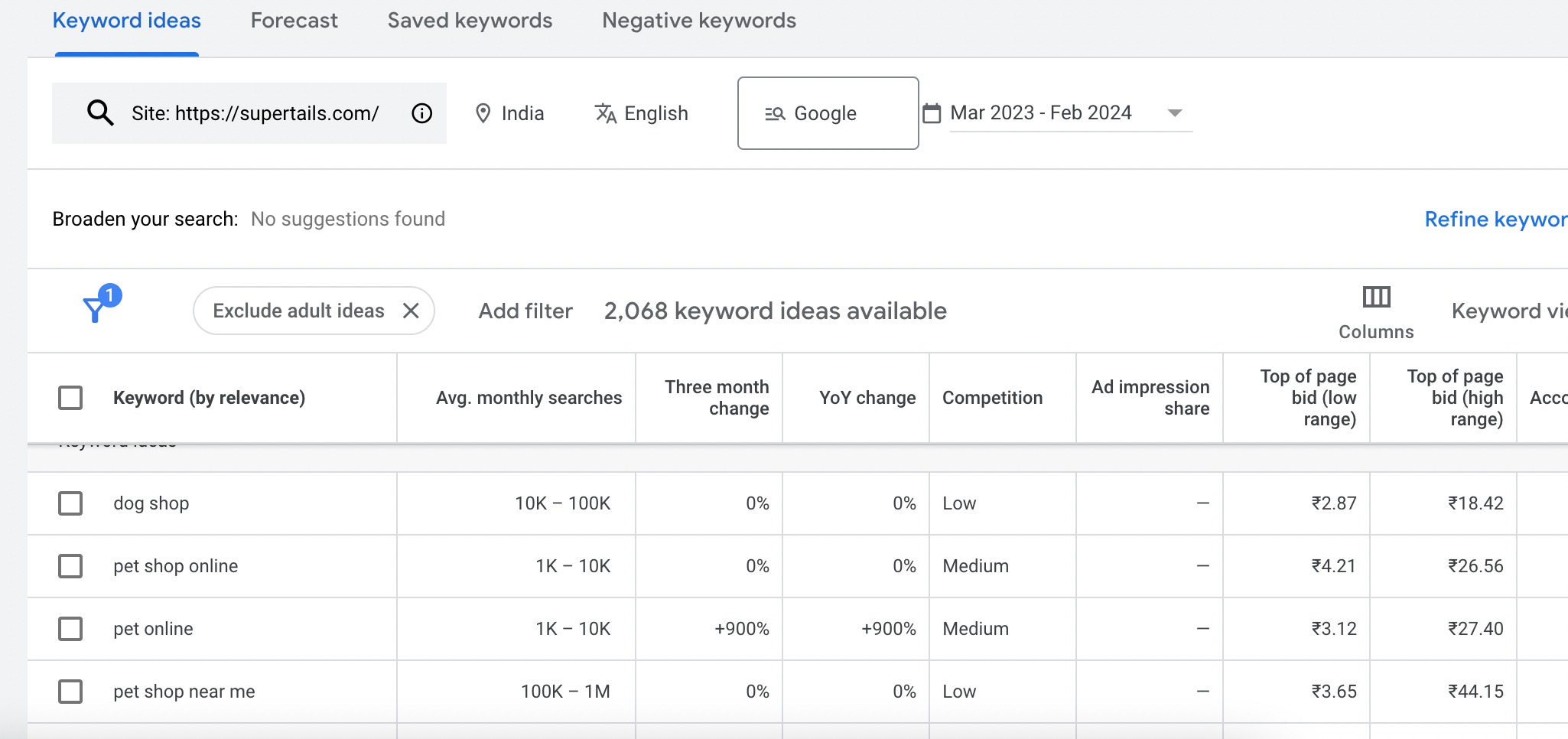
Next, analyze the list of keywords and compare them with the keywords your competitors are ranking for. Identify keywords that are present in your competitors’ keyword lists but are missing from yours. These are potential keyword gaps that you can target to expand your keyword reach.
You can also use Semrush’s Keyword Gap tool or Ahrefs’ Competitive Analysis tool to identify the keyword gaps.
In the Semrush Keyword Gap tool, enter your domain name and your competitor’s domain name and click Compare.
Scroll down to view the list of missing keywords. You can then use these keywords to create content on your site.
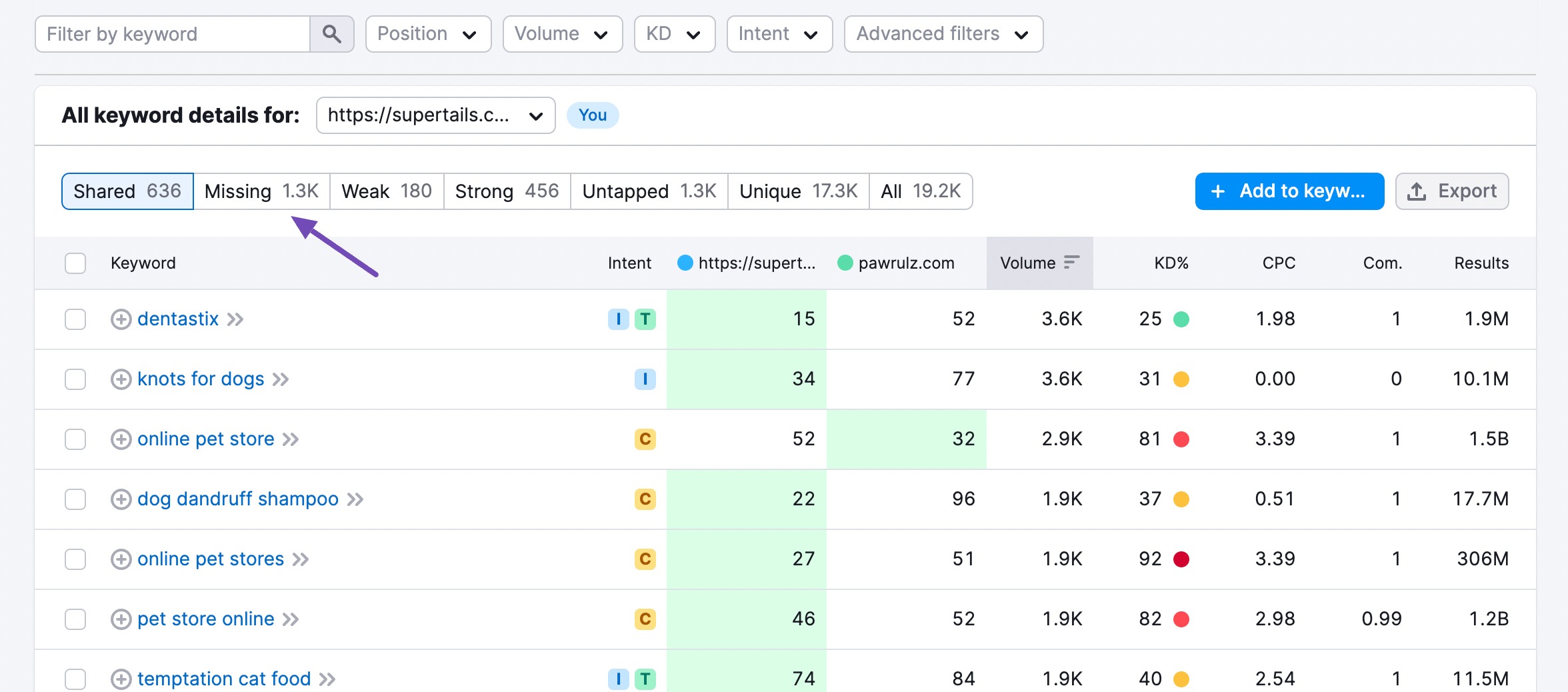
3.3 Perform Content Analysis
Once you’ve found the keyword gaps, the next step of SEO competitive analysis is to perform content analysis to evaluate various aspects of content on your website or your competitor’s websites, understand its effectiveness, and identify areas for improvement.
Use tools like Google Analytics to assess the relevance of your content.
Navigate to the Engagement → Pages and screens section to view metrics such as page views and bounce rate. Analyze which pages have the highest engagement and whether the content aligns with your target audience’s interests.
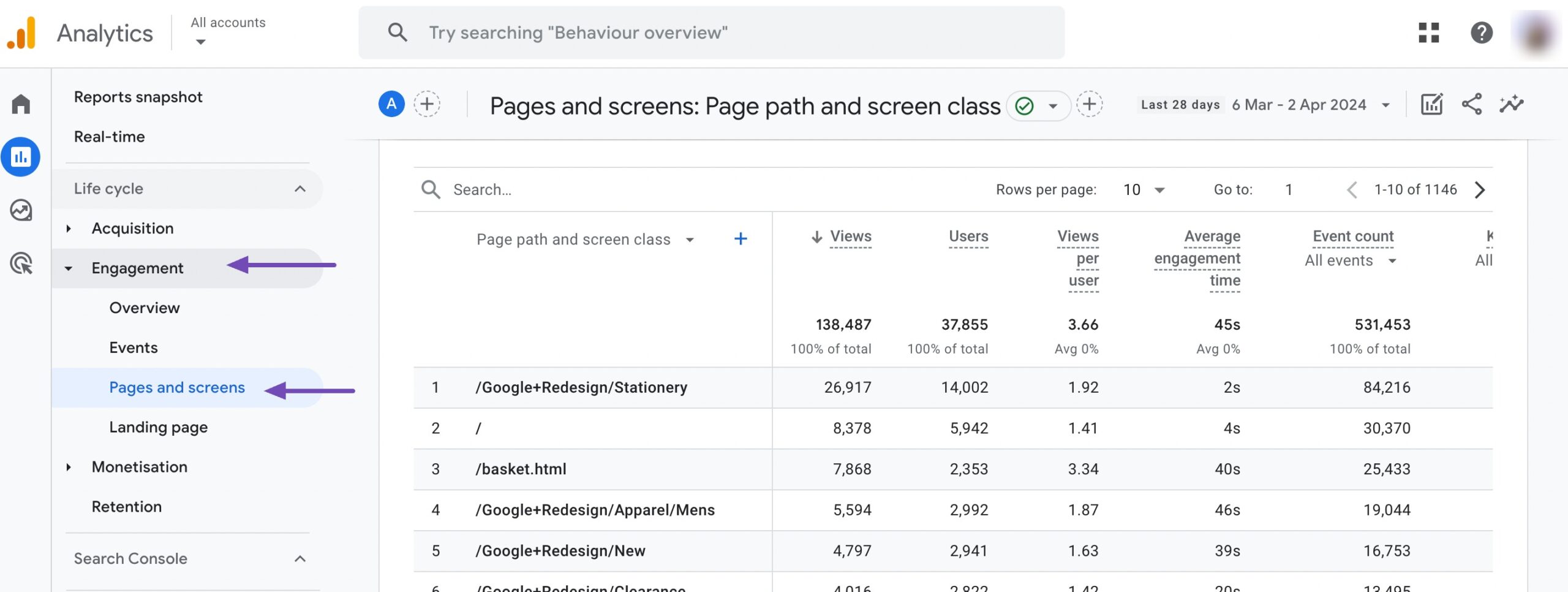
Tools like Semrush’s SEO Content Template (available in the free version) can help assess content depth. Enter your target keyword, and Semrush will provide recommendations for content length based on the top-ranking pages for that keyword.
Compare the length and depth of your content with top-ranking pages to identify areas for improvement.
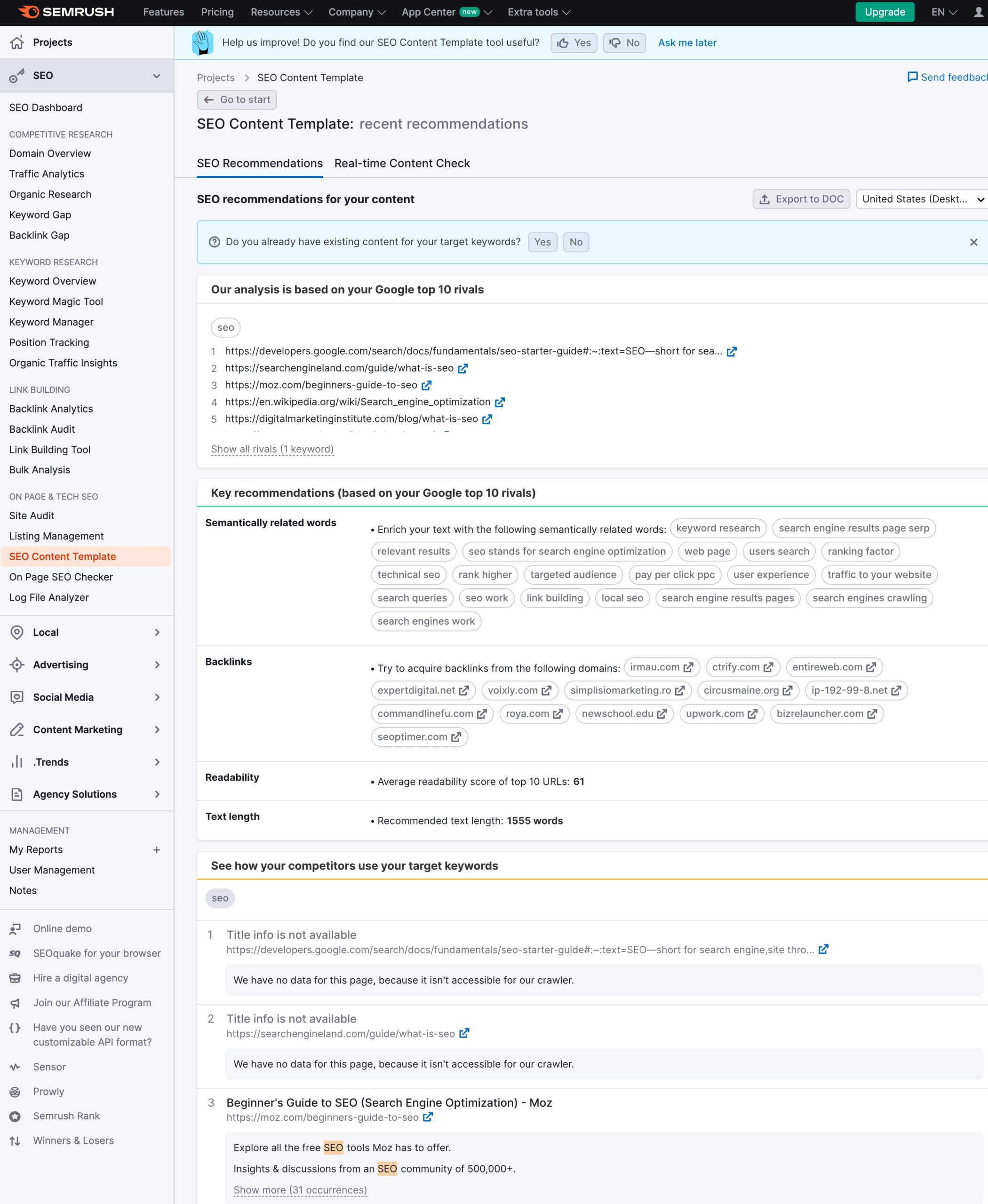
3.4 Perform On-Page SEO Analysis
Your competitors may be outranking you in SEO because they invest time and effort in optimizing their pages. Therefore, it’s important to analyze the pages that are outperforming yours. This analysis will help you understand why your competitors are achieving better rankings on search engines.
Focus on the following key areas:
- Metadata: Pay close attention to metadata such as title tags and meta descriptions.
- Headline Strategies: Analyze headline strategies, including title length, keyword inclusion, and proper use of title tags.
- Internal Linking: Try to understand their internal linking strategies to enhance your own on-site SEO efforts.
Identify their strengths to learn from them and areas where they’re lacking so you can improve upon them.
You can then analyze your website using Rank Math, as it provides in-depth content analysis and suggestions, evaluating various on-page elements such as headings, meta tags, and keyword density.
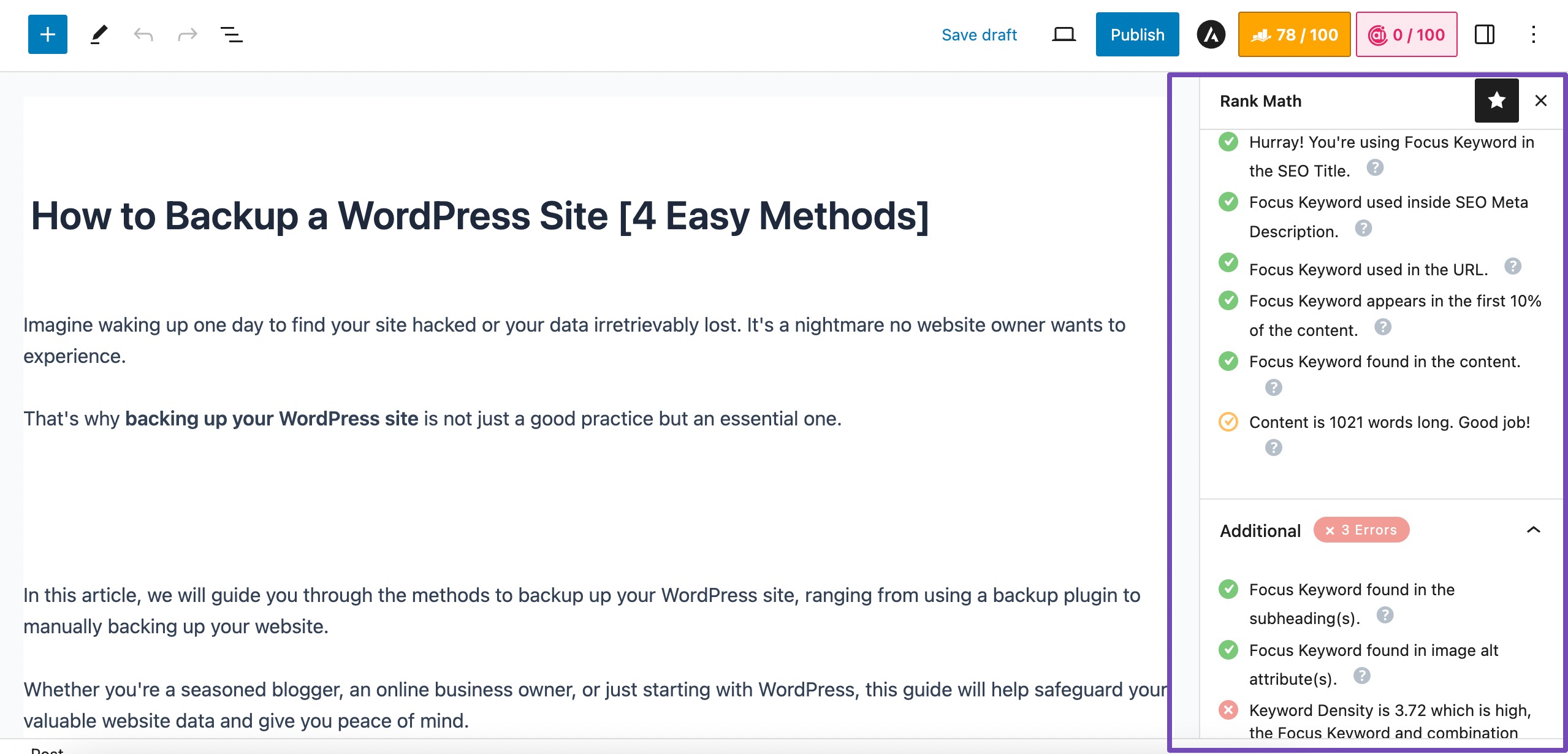
Furthermore, with Rank Math’s Content AI, creating SEO-optimized content becomes remarkably easy with just a few clicks.
3.5 Analyze Competitor’s Backlink Profiles
Another aspect of SEO competitive analysis involves discovering the sources of your competitors’ backlinks and using this insight to build high-quality links for your own website.
Examining your competitors’ link profiles presents an excellent opportunity to uncover fresh link-building possibilities.
Keep track of websites linking to your competitors, as they may also be willing to link to your site. Consider reaching out to them with a new blog post or guide covering a relevant topic or offering valuable insights to encourage them to link back to your site.
Refer to our dedicated tutorial on finding your competitor’s backlinks.
3.6 Check Where Your Competitors’ Traffic is Coming From
Analyzing where your competitors’ traffic is coming from is an essential aspect of SEO competitive analysis, as it provides insights into their sources of web traffic and helps identify potential opportunities for your own website.
You can utilize the Ahrefs Website Traffic Checker tool to examine your competitor’s website traffic. This tool does not necessitate any sign-up or account creation.
Enter the URL to check the website traffic and click the Check traffic button, as shown below.

Analyze the top traffic sources driving visitors to your competitor’s site. Look for opportunities corresponding to their successful strategies, such as targeting specific search keywords, engaging in content partnerships, etc.
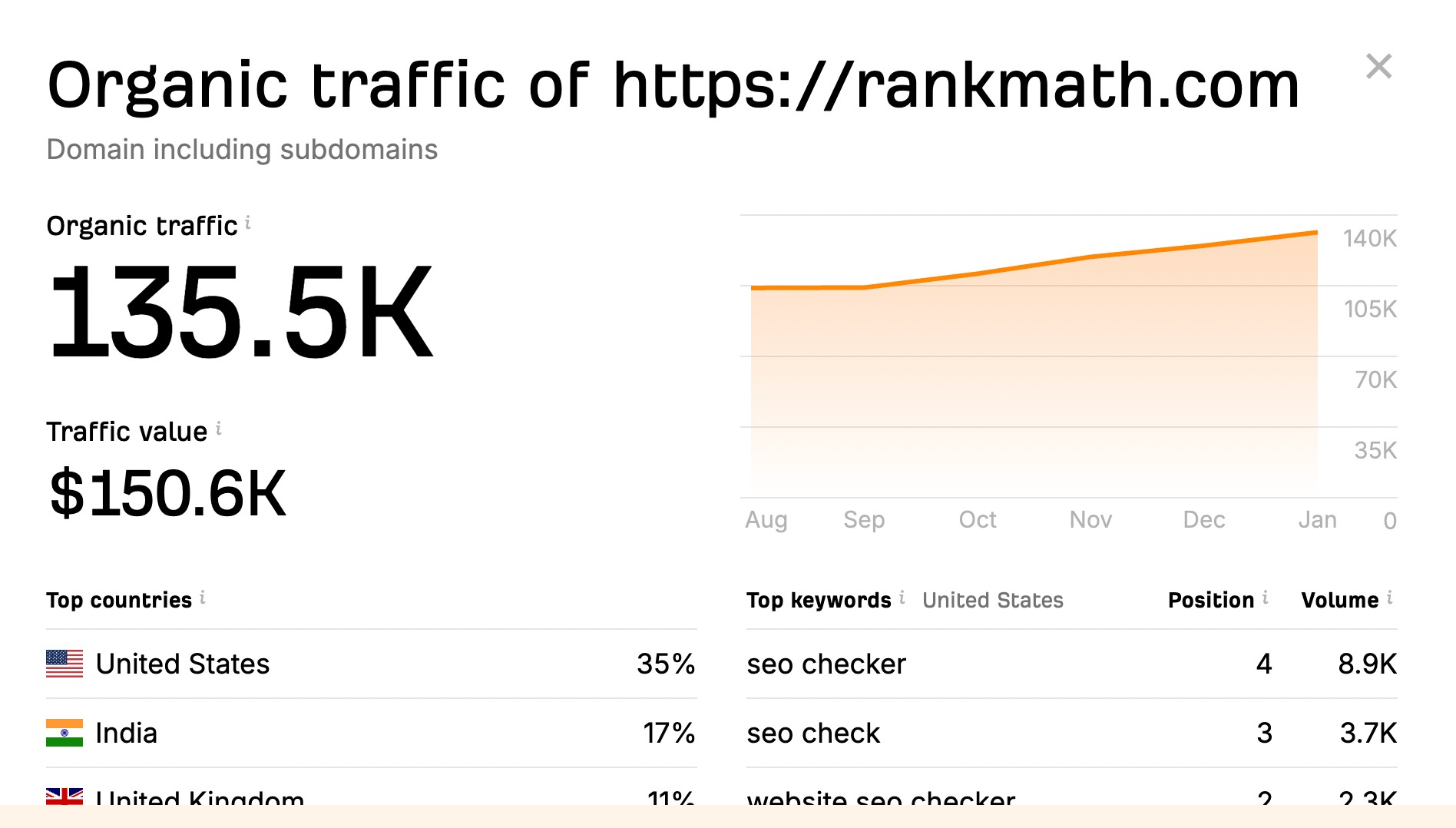
3.7 Capture Featured Snippets
The next step in SEO competitive analysis involves identifying the types of snippets your competitors are ranking for and devising strategies to compete for these positions.
Use Google Search to identify featured snippets related to your target keywords or topics.
For instance, suppose you operate a gardening blog and want to capture featured snippets on how to grow tomatoes. Search for this query on Google and observe the types of featured snippets appearing in the search results. These snippets may include step-by-step instructions, lists, or tables on growing tomatoes.
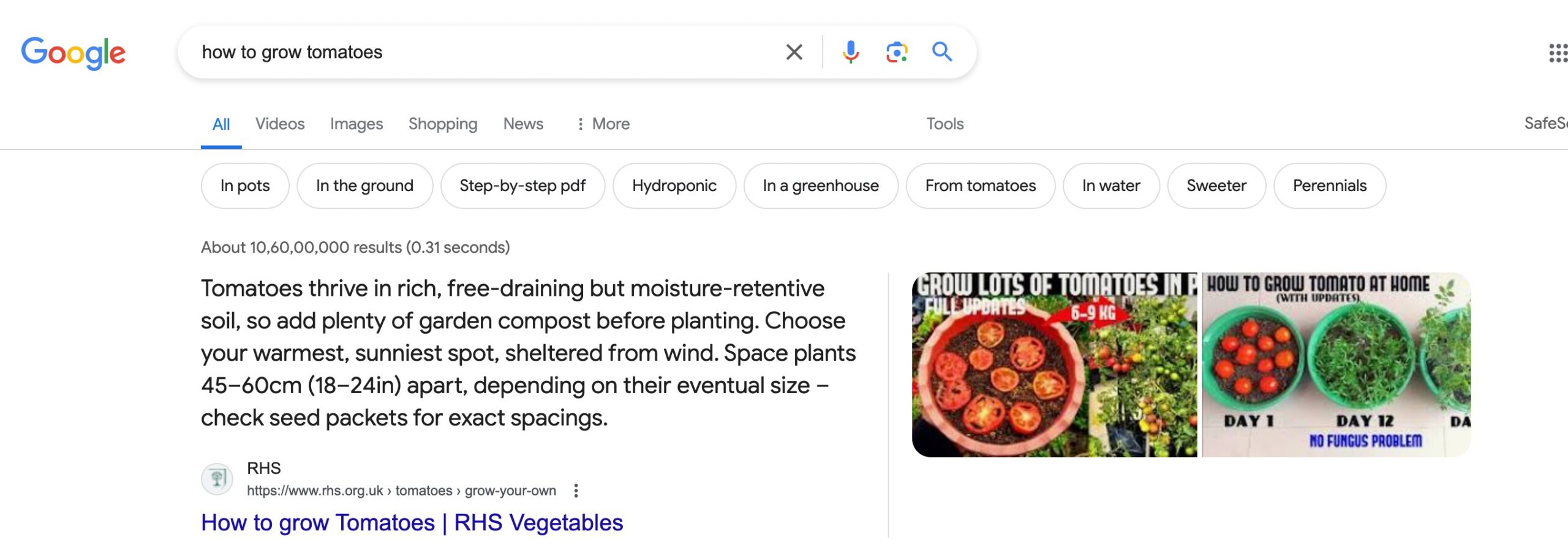
You can then use a free keyword research tool like AnswerThePublic to analyze the questions and queries related to your target topic.
Enter how to grow tomatoes into AnswerThePublic and review the questions generated by the tool.
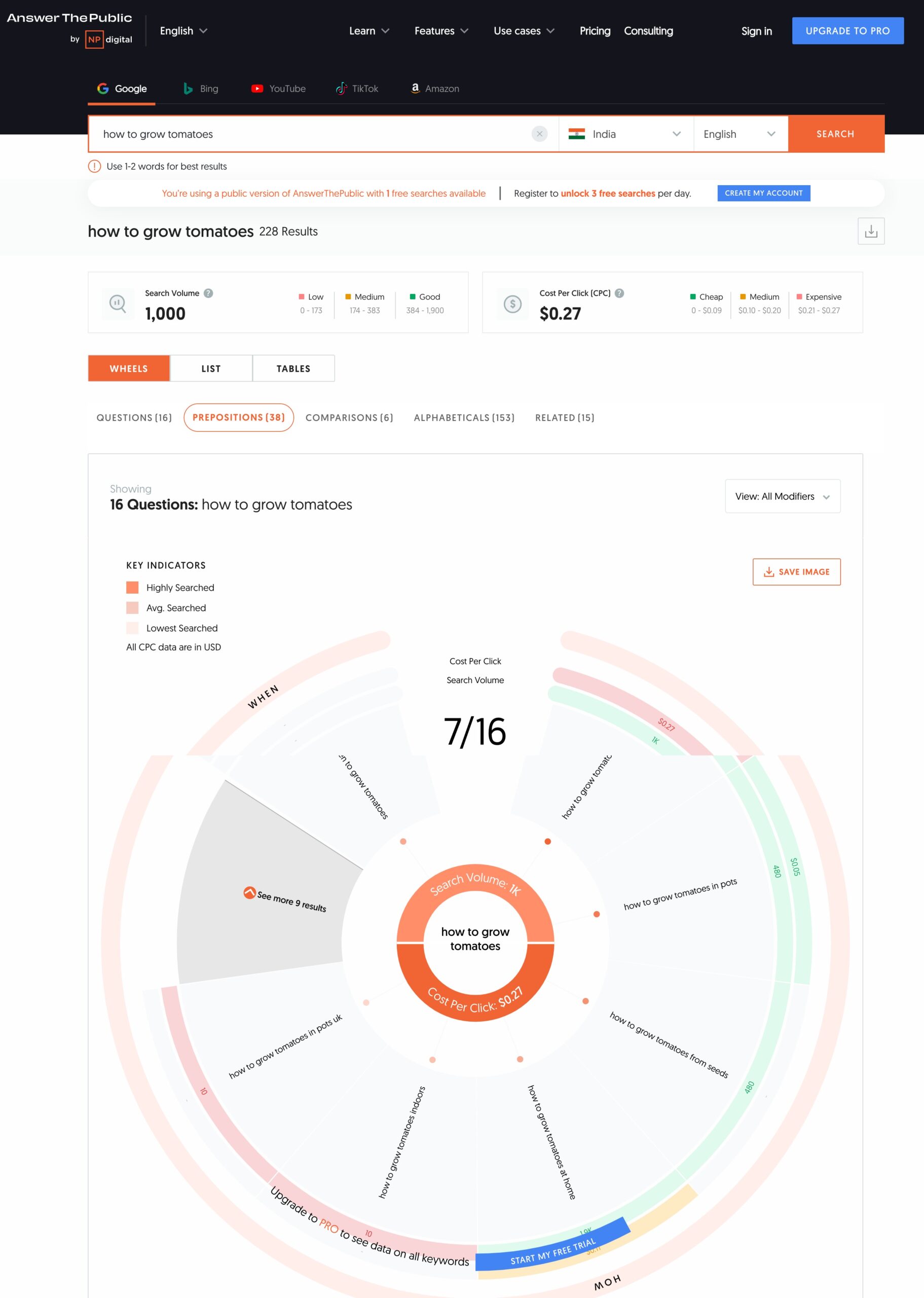
Next, analyze the featured snippets for the questions and identify competitors’ rankings for relevant snippets. Pay attention to these snippets’ format, structure, and content to understand how they effectively address user queries.

Structure your content in a format that aligns with the types of snippets commonly featured, such as numbered lists, bullet points, or concise paragraphs.
4 Conclusion
In conclusion, conducting an SEO competitive analysis is important in developing a successful marketing strategy.
By thoroughly examining your competitors’ tactics, identifying strengths and weaknesses, and uncovering valuable insights, you can fine-tune your own approach to achieve superior results.
Remember, SEO competitive analysis is an ongoing process that requires continuous monitoring and adaptation to stay ahead of the competition.
With dedication and strategic execution, you can establish your website in a prominent position and drive sustainable growth in organic traffic and visibility.
If you like this post, let us know by Tweeting @rankmathseo.

